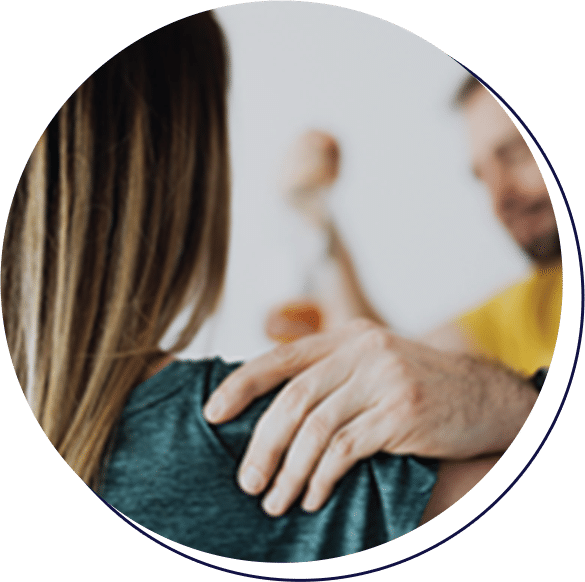How to Break Social Media Addiction
Perhaps the most troublesome aspect of social media for many people is social media addiction, where likes, shares and retweets are more important than authentic relationships. Learning more about the causes of social media addiction can help break the habit.


- Content last updated on:
- August 14, 2025
Written and edited by our team of expert legal content writers and reviewed and approved by

- Content last updated on:
- August 14, 2025
Researchers from California State University have estimated that between five and 10 percent of Americans may be at risk for social media addiction..
Signs and Symptoms of Social Media Addiction
Social media addiction occurs when a person is concerned about social media and their online presence to the point where it negatively impacts other facets of their life, from work and school to relationships and their sense of self-worth.
Signs of social media addiction are similar to those of other addictive behaviors, such as mood modification, interpersonal conflict and withdrawal symptoms.
Social media produces dopamine responses in the brain. Users get a boost when someone likes a post or responds with a positive comment. Over time, the individual may be unable to find pleasure in simple activities without sharing them online.
Anyone can habitually use social media. However, if you’re trying to determine whether you or a loved one is addicted to social media, ask the following key questions:
- Do you plan your activities around your social media?
- Do you feel that you need to interact online more and more often?
- Can you quit or reduce using social media without anxiety?
- Is posting or checking social media affecting your work or school performance?

Breaking the Social Media Addiction
Social media addiction can consume the lives of people who use these sites excessively. The condition is treatable, however, and many people have successfully recovered.
Reducing screen time, also called digital detox, and replacing it with real-life activities, such as sports or hobby groups, can ease the dependence on social media. However, for people whose addiction to social media is too severe, professional help and counseling may be required to overcome the associated withdrawal symptoms.
If you’re having a hard time controlling your social media use, or feel as if you or your child is exhibiting signs of social media addiction, there is hope and help.
Take an honest assessment of the benefits you get from your social media presence, and document times when scrolling through your Instagram or TikTok has made you feel anxious or depressed.
Exploring the “why” beyond social media can help you understand your triggers. Identifying the core need to skim social media can shed some light on what could be missing from your life.
Once you’ve discovered your triggers or cues, create a plan to combat them. You may come up with solutions such as taking a walk around the block when you’re bored at work or texting or calling someone directly when you’re curious about what your friends are up to.
Delete the apps from your phone, turn off notifications or leave your phone off or in another room.
If you’re a parent worried about your child’s screen time, you can take the same steps. Get your child a phone that’s only used to make calls and limit the time he or she has on computers.
Seeking counseling can help. A therapist who specializes in addiction may be able to help you or your teen with anxiety, depression and low self-esteem caused by social media addiction.
Social Media Victims Law Center Can Help
If your teen was harmed through social media, you have options. The Social Media Victims Law Center works to hold social media companies accountable for harm to users, including vulnerable teens.
If your child has expressed thoughts of self-harm, developed anxiety, is showing signs of disordered eating or has otherwise been impacted by social media use, reach out to our team for a consultation.
Frequently Asked Questions
For individuals and children who have been
We only handle cases on a contingent fee basis. This means that we are paid a portion of any recovery obtained in the case and you do not owe us any attorneys’ fees if the lawsuit does not result in a recovery.
Every case is unique. Our attorneys will work with your family to evaluate your potential case and help you evaluate whether filing a lawsuit or other legal proceeding is in your family’s best interest. Generally speaking, the types of cases we handle involve serious mental health effects, including attempted or completed suicide, eating disorders, inpatient mental health treatment, or sexual trafficking/exploitation that was caused by or contributed to through addictive or problematic social media use by teens and young adults.
We are a law firm based near Seattle, WA comprised of lawyers who have spent their entire careers representing victims who have been harmed by dangerous products. We are also parents. Shocked and troubled by the recent revelations about the harm caused to teens and young adults by social media platforms, which powerful technology companies have designed to be highly addictive, Social Media Victims Law Center was launched specifically to help families and children who have suffered serious mental harm or exploitation through social media use to obtain justice.
Your Child's Experience Matters, and Their Story Could Make a Difference
Related Pages
Client Testimonials
Is Your Child Addicted to Social Media?
You Are Not Alone.
We have helped hundreds of families just like yours whose children and teens were affected by social media addiction.
Explore Popular Topics

Addiction

Suicide

Eating Disorders

Anxiety

Bullying

Sexual Abuse

Body Image


